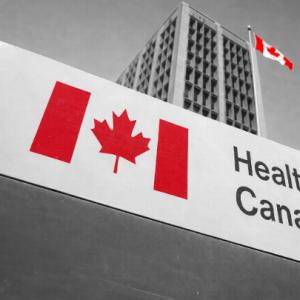Canada’s measles setback is a symptom of deeper sickness
It’s a frustrating and disappointing moment for public health in Canada. We've officially lost our measles elimination status, which we held since 1998.
The status signaled to Canadians and the world that the disease was under control. It also had material value. The elimination of measles means much less child suffering and much less public health expenditure.
The implications, while not immediately dire, are troubling, expensive, and a sign of larger problems.
Elimination is not eradication. It doesn't mean there are "no cases" of the disease. It means no sustained (endemic) transmission for at least one year. It also means we have strong surveillance, and the capacity to detect and control imported cases.
Losing our status means our country no longer meets these standards.
It does not mean measles is about to become entirely endemic (present everywhere, constantly), but it does raise the risk of that outcome. It does not mean that all parts of Canada are about to see measles outbreaks, since outbreaks depend on local immunity levels.
And it absolutely does not mean that vaccines do not work. Quite the opposite. Meeting our vaccination targets is our only path to reclaim elimination status.
How did we get here?
Public health is an institution built upon multiple pillars, including government, scientists, the biopharmaceutical industry, educators, and the public. Frankly, the loss of elimination status is primarily the public’s fault. As a population, we haven't stepped up to become immunized in sufficient numbers.
Herd immunity against measles requires about 95 per cent of the population to be vaccinated. But in B.C., recent data show that only 82 per cent of two-year-olds have received a single dose of the MMR vaccine, and only 72 per cent of seven-year-olds received both doses. Multiple provinces have seen declines in childhood MMR coverage.
Implications?
Back in the good old days when we had elimination status, new cases brought into Canada by travelers were quickly snuffed out. They couldn't gain a foothold among highly immunized populations.
Now that our population has significant immunity gaps, new cases are more likely to spark genuine outbreaks that lead to sustained community transmission.
Not only is this dangerous, since measles has a serious history of hospitalizing, disabling, and killing children, but it’s also expensive. Public health in Canada is already cash-strapped. It will have to incur more costs to trace and contain new outbreaks.
Remember, before vaccination Canada saw hundreds of thousands of measles cases every year, leading to hundreds of child deaths. This was at a time when our population was a fraction of what it is today.
Measles is a killer of children — with very high rates of lifelong disability in those who survive.
To be clear, we are not going back to the same numbers as the pre-vaccine era. Most people still wisely choose to vaccinate their children. Measles though, is so incredibly contagious that even just a few antivax-hold-outs mean we do not meet the herd immunity threshold, making outbreaks both more frequent and more sustained whenever they occur.
This is dangerous. It's also going to be expensive. And we need to act very quickly.
And what of Canadians traveling abroad? We will be (understandably) subject to increased scrutiny by border agents of foreign nations, who will view us as potential vectors of infection.
What are our options?
Canada needs to scale up vaccination efforts, especially in under-vaccinated communities. We're already pressed for resources, suffering extreme vaccine-communication fatigue, and under continuous barrage from the brigade of anti-vaccine activists flooding the zone with disinformation. This makes the job much harder.
In most provinces, any parent can receive vaccine exemptions for their school-aged children on religious or philosophical grounds.
While threatening people’s religious convictions might be anathema to a free and open society, it might be worthwhile to review these exemption criteria. At the very least, some creativity must be deployed to develop a set of vaccination incentives that could outweigh objections.
Nudge economics teaches us that minute inconveniences and inducements can lead to dramatic behavioural changes. Making vaccines easy to get, while imposing additional administrative burden on those seeking exemptions, might be enough to get us over the herd immunity line. Clearly, doing nothing isn't working.
Finally, we must commit ourselves to combat the single deadliest threat to our democracy and civil society: misinformation and disinformation.
Whether engineered or simply repeated in ignorance, online falsehoods have eroded the information systems democracy relies on. Public health is where the damage shows up first.
What meager resources remain in the health basket must be applied to identifying, containing, and extinguishing clearly false information that threatens population health. The rise of RFK Jr. and his followers is both an indicator and an accelerant of pseudoscience infiltrating mainstream discourse and the halls of power.
The spillover effects do not stop at the U.S. border.
It’s time for a national conversation about how much of this the Canadian public is willing to tolerate and which levers would be acceptable to put an end to it.
The loss of elimination status wasn't inevitable. It was a policy failure. But it can still be reversed.
Rebuilding trust, investing in public health, and countering disinformation are not optional luxuries. They are prerequisites for a functioning and democratic society. The question now is not if measles will return, it's whether we have the will to learn from our mistakes before it does.
Dr. Raywat Deonandan is a Global Health Epidemiologist and Professor at the University of Ottawa. He is a former Chief Scientist with the Canadian federal government, and an award-winning writer. Contrary to accusations from bots on X, he does not receive cheques from Klaus Schwab, Pfizer, or Bill Gates. Though that would be nice.









